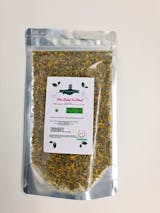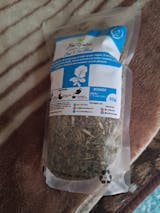This week we will discuss fibroids in detail and be sure to check out our socials as we discuss this in detail.
Join our WhatsApp group for treating fibroids: https://chat.whatsapp.com/Beg5g0pBnNB7liqmS7uwWS
Q: What's the difference between cysts and fibroids?
A: Fibroids and ovarian cysts are usually identifiable during a regular pelvic exam
Fibroids are noncancerous lumps that can form within or outside the uterine wall.
Cysts are fluid-filled sacs formed on the exterior of the ovary and are specific to the ovaries. If you have a solid cyst, your doctor will most likely prescribe a blood test to identify whether or not it is malignant.
Q: What are the symptoms of fibroids?
A: Most women do not show signs of fibroids, but those who have experienced symptoms have reported:
Abnormally heavy periods
Periods that last longer than a week
Frequent urination
Difficulty emptying the bladder
Constipation
Pelvic discomfort or pain
Back pain or leg cramps
Q: What are the types of fibroids?
A: Uterine fibroids are classified into three major groups;
Intramural Fibroids - these develop within the muscular uterine wall and, if large enough, can distort the shape of the uterus, resulting in heavy periods, discomfort, and pain.
Subserosal Fibroids - these protrude from the uterus's surface. This form of fibroid starts in the muscle wall and eventually juts into the pelvis.
Submucosal Fibroids - these develop in the uterine cavity, just under the uterine lining. Despite being the rarest type of uterine fibroids, they are the most troublesome.
Join our WhatsApp group for treating fibroids: https://chat.whatsapp.com/Beg5g0pBnNB7liqmS7uwWS
Q: Can fibroids cause infertility?
A: Not necessarily, it depends on what type of fibroid you have. Submucosal fibroids can prevent pregnancy by blocking the fallopian tube, thus preventing the fertilised egg from being implanted.
Q: Can I use Yoni steam herbs for fibroids?
A: Yes, the ancient traditional method of vaginal steaming can be beneficial for alleviating fibroids, among other things, including yeast and bladder infections, reproductive surgery scarring, and infertility. See more benefits of yoni steam
Q: Does apple cider vinegar cure fibroids?
A: Although apple cider vinegar is frequently thought to be a miracle remedy, it does not reduce fibroids. It may, however, provide additional health benefits, such as assisting in weight management and diabetic control.
Q: Can cayenne pepper and turmeric reduce fibroids?
A: Turmeric contains the antioxidant curcumin, which has anti-inflammatory properties. Preliminary research in one study has found that curcumin can reduce fibroid development in one study. However, it is not officially recommended as a fibroid remedy.
Q: Does eating soil cause fibroids?
A: Fibroids are not caused by eating soil. The tendency to consume soil, ice or clay, on the other hand, might be an indication of anaemia, a typical fibroid symptom.
Q: Do fibroids cause weight gain?
A: Fibroids do not cause weight gain. However, certain fibroids can grow to be quite large, weighing several pounds in extreme situations. Larger fibroids can strain on other tissues in the belly or pelvis, causing bloating and swelling in the abdomen.
Q: Do fibroids have emotional side effects?
A: Yes, fibroids have been noted to affect some women's mental health and many women describe difficulties with anxiety, depression, body dysmorphia, and generally low quality of life.
If you have been diagnosed with fibroids >>>This<<< | Fibroids Combo + Fibroids drops what I recommend you to use in order to shrink them naturally
Join our WhatsApp group for treating fibroids: https://chat.whatsapp.com/Beg5g0pBnNB7liqmS7uwWS
Be sure to follow us on Instagram and Facebook while we discuss this topic of fibroids in detail this week.
Lets chat on WhatsApp 065 225 2525



I have a 16 year old daughter, who’s is having irregular period. She last had her period in November last year, and it lasted for 3 months. Now she is complaining about abdominal pains. Is it fibroids or cyst? Please assist